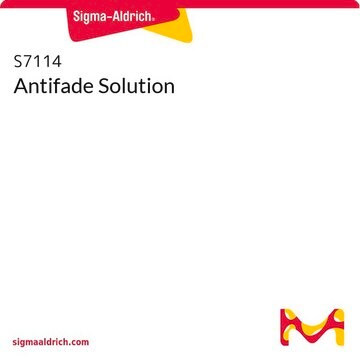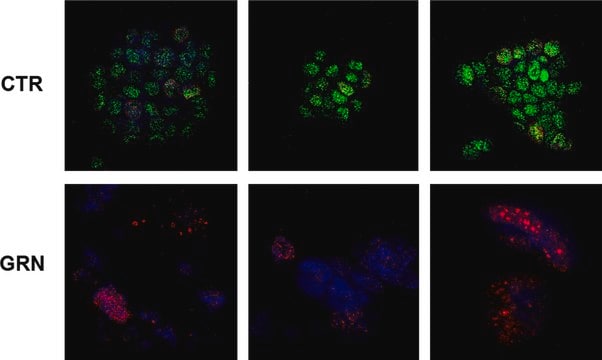217721
RO-3306
≥95% (HPLC), liquid, Cdk1 inhibitor, Calbiochem®
Synonym(s):
InSolution Cdk1 Inhibitor IV, RO-3306, 5-(6-Quinolinylmethylene)-2-((2-thienylmethyl)amino)-4(5H)-thiazolone, 5-(Quinolin-6-ylmethylene)-2-(thiophen-2-ylmethylamino)thiazol-4(5H)-one, 5-(Quinolin-6-ylmethylene)-2-(thiophen-2-ylmethylamino)thiazol-4(5H)-one, 5-(6-Quinolinylmethylene)-2-((2-thienylmethyl)amino)-4(5H)-thiazolone
About This Item
Recommended Products
Product Name
Cdk1 Inhibitor IV, RO-3306, InSolution, ≥95%
Quality Level
Assay
≥95% (HPLC)
form
liquid
manufacturer/tradename
Calbiochem®
storage condition
OK to freeze
avoid repeated freeze/thaw cycles
desiccated (hygroscopic)
protect from light
shipped in
dry ice
storage temp.
−70°C
SMILES string
[s]1c(ccc1)CNC2=NC(=O)\C(=C\c3cc4c(nccc4)cc3)\S2
InChI
1S/C18H13N3OS2/c22-17-16(24-18(21-17)20-11-14-4-2-8-23-14)10-12-5-6-15-13(9-12)3-1-7-19-15/h1-10H,11H2,(H,20,21,22)/b16-10-
General description
Biochem/physiol Actions
Cdk1/B1 and Cdk1/A
Cdk2/E, PKCδ, and SGK
Packaging
Warning
Physical form
Reconstitution
Other Notes
Legal Information
Storage Class Code
10 - Combustible liquids
WGK
WGK 2
Flash Point(F)
188.6 °F - closed cup - (refers to pure substance)
Flash Point(C)
87 °C - closed cup - (refers to pure substance)
Certificates of Analysis (COA)
Search for Certificates of Analysis (COA) by entering the products Lot/Batch Number. Lot and Batch Numbers can be found on a product’s label following the words ‘Lot’ or ‘Batch’.
Already Own This Product?
Find documentation for the products that you have recently purchased in the Document Library.
Our team of scientists has experience in all areas of research including Life Science, Material Science, Chemical Synthesis, Chromatography, Analytical and many others.
Contact Technical Service








